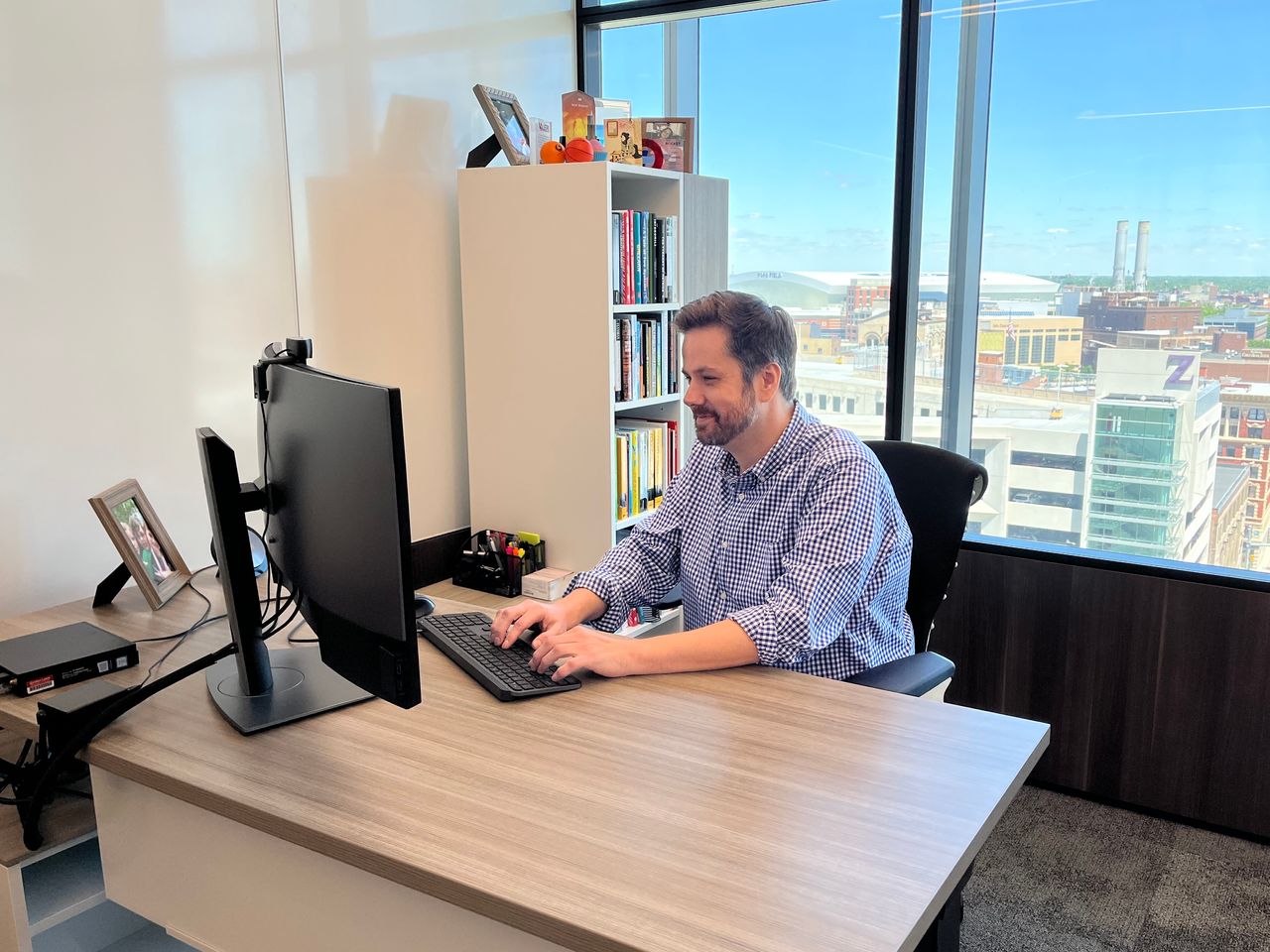Companies Are Drowning in Too Much AI
IT sellers are rolling out an avalanche of new generative AI features, leaving CIOs overwhelmed and workers confused
Businesses are facing an influx of new artificial-intelligence tools, many of which overlap and cause confusion for employees, as corporate-technology sellers race to capitalise on the generative AI trend.
“Since the ChatGPT excitement, I must have had at least 20 to 25 vendors in my portfolio reach out to me saying, ‘Hey, let us tell you about our generative AI co-pilot strategy,’” said Milind Wagle, chief information officer at Equinix, one of the world’s biggest data-centre landlords.
Generative AI features, which can respond to user prompts by generating images or text, often come in the forms of co-pilots, or virtual assistants that work in tandem with an IT seller’s offerings, sometimes automating certain tasks within that platform. Wagle said Equinix is drowning in a flood of co-pilots—and he is trying to figure out how, if at all, they should coexist.
“I feel like there’s a co-pilot war that needs to sort of happen,” he said.
The co-pilot proliferation is leading to confusion for employees who are looking for a single common interface to accomplish certain tasks, Wagle said. It can also create potential governance risks if there is a possibility that private data from a company that interacts with the co-pilots could make its way into public training models for generative AI tools.
Gartner analyst Arun Chandrasekaran said IT sellers are feeling pressure to move into the generative AI space or risk falling behind, meaning some half-baked features will be rushed out without the proper privacy and security guardrails in place. Established IT sellers also need to consider security concerns, including whether a customer’s data can be fed back to train the model, because this is uncharted territory, he added.
Chandrasekaran estimates that a fifth of independent software vendors have stepped into the generative AI space since ChatGPT was launched about seven months ago—a huge amount of growth in a short time, he said.
“I don’t think I’ve had a partner or vendor meeting this year where I wasn’t pitched a generative AI play,” said Brian Woodring, CIO of Rocket Mortgage, a nonbank mortgage provider.

Sometimes the co-pilots appear in system updates as a freebie, and sometimes they cost extra, Woodring said. He added that in some cases, the generative AI features are tacked on, despite not being compelling additions or the best tool for the job.
“Everyone’s trying to fit it in everywhere,” he said, adding, “It’s not something you can just spread around like peanut butter. It’s not a coat of paint you put on your product afterwards and say, now it’s AI.”
In other instances, the features are things that Rocket Mortgage could confidently and more cheaply build in house, Woodring said. For example, a number of tools on the market pull and analyse data from phone calls, a feature that Rocket Mortgage was able to build itself, he said.
Tech executives said they are looking critically at new generative AI tools to distinguish between the truly compelling ones and the ones that are just paying lip service to the hype. How well the tools will be able to integrate with each other is another consideration.
“We want clarity on how we can connect every single one,” said Noé Angel, CIO at agriculture company NatureSweet. When tools are too fragmented, it ends up creating more work for those who have to manage them, he said.
Jim Stratton, chief technology officer of Workday, a provider of enterprise cloud applications for finance and human resources, said that longer term, he expects consolidation and clearer winners to emerge when it comes to certain AI capabilities, which could simplify things for companies.
But nearer term, navigating the complexity of the landscape remains a challenge. “There’s still a lot of noise at the moment,” he said.
 Copyright 2020, Dow Jones & Company, Inc. All Rights Reserved Worldwide. LEARN MORE
Copyright 2020, Dow Jones & Company, Inc. All Rights Reserved Worldwide. LEARN MORE
This stylish family home combines a classic palette and finishes with a flexible floorplan
Just 55 minutes from Sydney, make this your creative getaway located in the majestic Hawkesbury region.
Continued stagflation and cost of living pressures are causing couples to think twice about starting a family, new data has revealed, with long term impacts expected
Australia is in the midst of a ‘baby recession’ with preliminary estimates showing the number of births in 2023 fell by more than four percent to the lowest level since 2006, according to KPMG. The consultancy firm says this reflects the impact of cost-of-living pressures on the feasibility of younger Australians starting a family.
KPMG estimates that 289,100 babies were born in 2023. This compares to 300,684 babies in 2022 and 309,996 in 2021, according to the Australian Bureau of Statistics (ABS). KPMG urban economist Terry Rawnsley said weak economic growth often leads to a reduced number of births. In 2023, ABS data shows gross domestic product (GDP) fell to 1.5 percent. Despite the population growing by 2.5 percent in 2023, GDP on a per capita basis went into negative territory, down one percent over the 12 months.
“Birth rates provide insight into long-term population growth as well as the current confidence of Australian families,” said Mr Rawnsley. “We haven’t seen such a sharp drop in births in Australia since the period of economic stagflation in the 1970s, which coincided with the initial widespread adoption of the contraceptive pill.”
Mr Rawnsley said many Australian couples delayed starting a family while the pandemic played out in 2020. The number of births fell from 305,832 in 2019 to 294,369 in 2020. Then in 2021, strong employment and vast amounts of stimulus money, along with high household savings due to lockdowns, gave couples better financial means to have a baby. This led to a rebound in births.
However, the re-opening of the global economy in 2022 led to soaring inflation. By the start of 2023, the Australian consumer price index (CPI) had risen to its highest level since 1990 at 7.8 percent per annum. By that stage, the Reserve Bank had already commenced an aggressive rate-hiking strategy to fight inflation and had raised the cash rate every month between May and December 2022.
Five more rate hikes during 2023 put further pressure on couples with mortgages and put the brakes on family formation. “This combination of the pandemic and rapid economic changes explains the spike and subsequent sharp decline in birth rates we have observed over the past four years,” Mr Rawnsley said.
The impact of high costs of living on couples’ decision to have a baby is highlighted in births data for the capital cities. KPMG estimates there were 60,860 births in Sydney in 2023, down 8.6 percent from 2019. There were 56,270 births in Melbourne, down 7.3 percent. In Perth, there were 25,020 births, down 6 percent, while in Brisbane there were 30,250 births, down 4.3 percent. Canberra was the only capital city where there was no fall in the number of births in 2023 compared to 2019.
“CPI growth in Canberra has been slightly subdued compared to that in other major cities, and the economic outlook has remained strong,” Mr Rawnsley said. “This means families have not been hurting as much as those in other capital cities, and in turn, we’ve seen a stabilisation of births in the ACT.”
This stylish family home combines a classic palette and finishes with a flexible floorplan
Just 55 minutes from Sydney, make this your creative getaway located in the majestic Hawkesbury region.






















